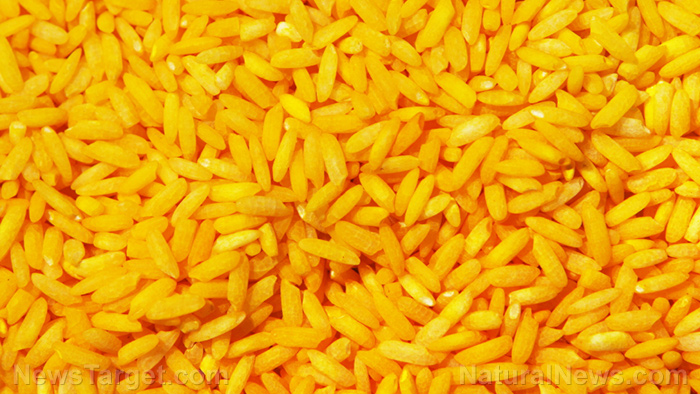
GMO “golden rice” over-hyped nutrition claims dismantled by none other than the FDA
Tuesday, June 12, 2018 by Isabelle Z.
http://www.realsciencenews.com/2018-06-12-gmo-golden-rice-hyped-nutrition-claims-dismantled-by-none-other-than-the-fda.html

Golden rice was once touted as a miracle food that would save the world from vitamin A deficiency and the health problems it can cause. Two decades later, the rice has failed to deliver on its promises – as many predicted – and the future for this GMO rice isn’t looking too bright, either. In fact, the U.S. Food and Drug Administration (FDA) has likely sealed its fate by determining that it does not offer any nutritional benefits.
Golden rice is rice that has been modified so its grain produces the nutrient beta-carotene with the aim of creating a good source of vitamin A. However, the FDA has informed the developers of the rice, the International Rice Research Institute (IRRI), that it failed to meet the nutritional requirements for making health claims.
This is just the latest in a string of bad news for the rice, which has been produced in various iterations throughout the years but has yet to find success. The rice in question from the IRRI is the only one that has ever made it as far as the regulatory approval stage. With backing from the Gates Foundation, the rice has been approved for import by regulating bodies in Canada, Australia and New Zealand.
However, the FDA remains highly skeptical. Even though IRRI doesn’t plan to market golden rice in the U.S., there is a good chance it will contaminate American rice imports because rice is wind-pollinated. There have already been lots of devastating incidents of GMO contamination, including a high-profile case in 2006 that disrupted the world’s rice market for two years after an unreleased GMO rice made its way into the supply.
According to the FDA, golden rice’s beta-carotene levels are not only low, but they can also vary across a wide range of 0.50 to 2.35 μg/g. Calculations show that a person would need to consume 3.75 kg of golden rice a day in order to get an adequate amount of beta-carotene, which is extremely unrealistic.
Making matters worse, the FDA points out that people’s actual intake would certainly be lower as the rice’s beta-carotene levels drop over time in storage. Past studies have shown that it retains just 60 percent of its beta-carotene after three weeks of storage; once it’s been in storage for 10 weeks, that figure drops to 13 percent. It’s believed that oxygen causes the beta-carotene in the grains to degrade quickly. That degradation could occur even faster depending on individual household conditions.
Too many problems to overcome
The nutritional aspect would be enough to render the pursuit of this rice pointless on its own, but there are also plenty of other stumbling points. In fact, many feel this doomed-to-fail effort was really just a desperate way to try to gain acceptance for the controversial practice of genetically modifying crops.
At its very core, it doesn’t seem to address the real reason for malnutrition in the world, which is not just a poor diet but also hunger and poverty. Poor children in places like Bangladesh and the Philippines wouldn’t necessarily have access to this rice, even if it could solve their problems, nor the means to prepare it and consume the oily diet needed for their bodies to make use of its fat-soluble nutrients. Malnourished people typically lack all nutrients, not just one particular vitamin, and they need a well-rounded diet to make a difference.
Another problem is that the jury is still out on whether or not golden rice is safe. There’s a distinct lack of studies on long-term human safety, particularly among the target populations. When you add it all up – from the lack of nutrients to its unproven safety and questions about whether it can even help the population it’s intended for – it’s hard to see why so much effort is being put into a product that essentially has no selling points.
Sources include:
Tagged Under: Tags: badfood, badscience, FDA, food safety, food supply, genetic modification, GMOs, Golden Rice, harvest, hunger, junk science, malnourishment, malnutrition, nutrients, nutritional benefits, vitamin A, vitamin A deficiency





